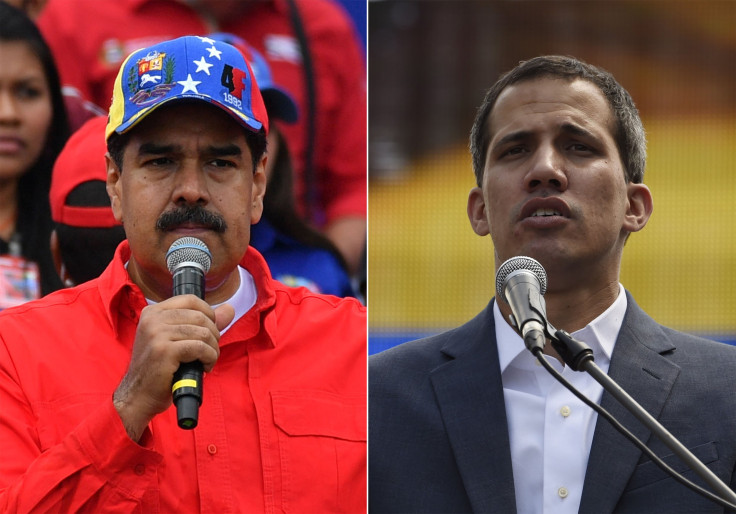US Planning Armed Intervention In Venezuela? Cuba Condemns Possible Move, Military Movement

Statements by President Donald Trump and the chairman of the Senate Armed Services Committee over the last few days have indicated the option of U.S. military intervention in Venezuela is a possibility.
On Sunday, Trump said he was looking at "all options" to deal with the Venezuelan crisis. Though Trump refused to say if he was planning to send troops to the South American country, he also did not rule out the possibilities of military intervention. Two days later, Sen. James Inhofe, the Republican chairman of the Senate Armed Services Committee, said a U.S. military intervention could take place if Russia placed weapons in the country.
“You’ve got a guy down there that is killing everybody. You could have him put together a base that Russia would have on our hemisphere. And if those things happen, it may be to the point where we’ll have to intervene with troops and respond,” he said, the Hill reported.
When asked about the type of military action U.S. could take, Inhofe said, “Whatever is necessary should they bring in some armaments on our hemisphere that would be, in the smart peoples’ opinion, something that would be a threat to the United States of America. Then we have to take whatever action necessary to stop them from doing that.”
A senior Russian diplomat, however, said Tuesday that Venezuela had not approached the country for military assistance.
Post the statement by Trump, Democratic lawmakers said Wednesday that Congress would not support U.S. military intervention in Venezuela.
“I do worry about the president’s saber rattling, his hints that U.S. military intervention remains an option. I want to make clear to our witnesses and to anyone else watching: U.S. military intervention is not an option,” Eliot Engel, the Democratic chairman of the House of Representatives Foreign Affairs Committee, said, Reuters reported.
Venezuela’s ally Cuba issues a statement Wednesday condemning the U.S. government for putting pressure on Venezuela, and accused it of forcing a regime change in the country under the pretext of solving a humanitarian crisis.
“The Revolutionary Government of the Republic of Cuba condemns the escalation of pressures and actions of the US government in preparation for a military adventure under the guise of a humanitarian intervention in the Bolivarian Republic of Venezuela and calls on the international community to mobilize in order to prevent its consummation,” the statement said.
The statement also said the U.S. “intends to fabricate a humanitarian pretext in order to launch a military aggression against Venezuela and is seeking to introduce in the territory of that sovereign nation, by resorting to intimidation, pressures and force, an alleged humanitarian aid which is one thousand times inferior as compared to the economic damages provoked by the siege imposed from Washington.”
The crisis in Venezuela took an ugly turn in January when over 40 people died during protests against President Nicolas Maduro, who is serving his second presidential term. However, the election was called fraudulent by several countries, including the U.S., following which opposition leader Juan Guaido declared himself the interim president. While U.S and its allies, including Brazil, Canada, Chile and Argentina, recognized Guaido as the country’s true leader, Maduro’s longtime allies, such as Mexico and Cuba, supported the sitting president. The country’s military also took Maduro’s side.
The statement by Cuba said the U.S. was putting “brutal pressures on numerous governments to force them to support the arbitrary call for new presidential elections in Venezuela, while promoting recognition for the usurper who hardly earned 97 000 votes as a parliamentarian, against the more than 6 million Venezuelans who elected Constitutional President Nicolás Maduro Moros last May.”
On Jan. 24, Russia warned the U.S. against military intervention in Venezuela.
“We caution against this. We believe that this would be a catastrophic scenario that will shake the foundations of the development model we are witnessing in the Latin American region. Where, as you know, one of the slogans, one of the conceptual elements of self-perception, self-identification of these very close fraternal countries in the vast region of Latin America is unity in diversity,” Russia’s Deputy Foreign Minister Sergey Ryabkov said.
© Copyright IBTimes 2024. All rights reserved.





















